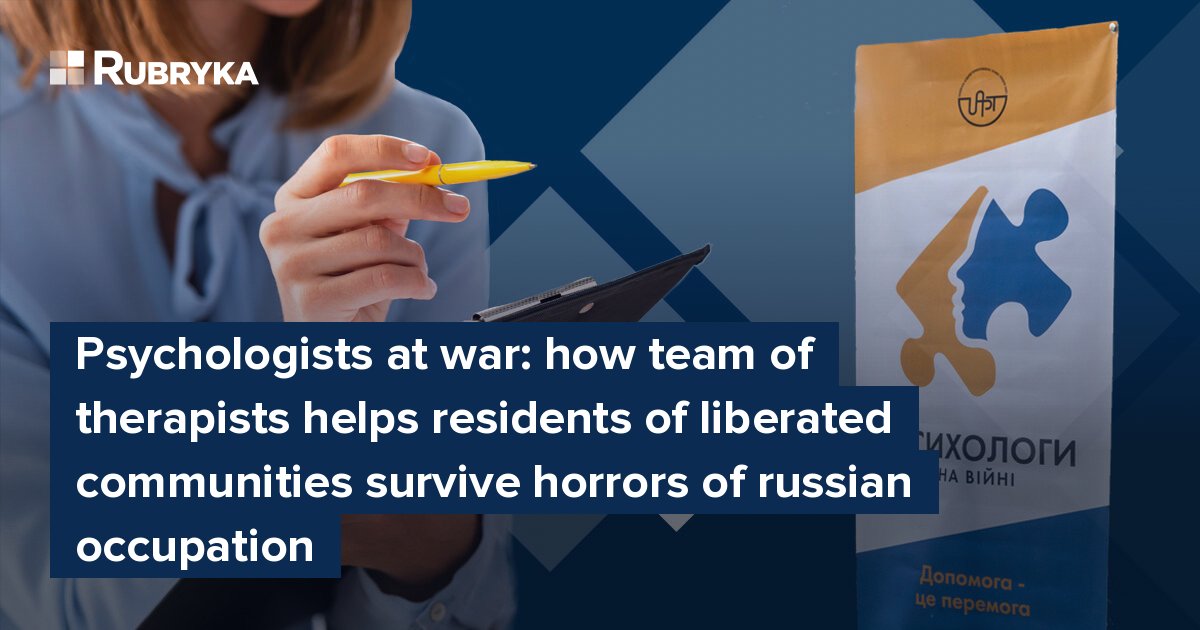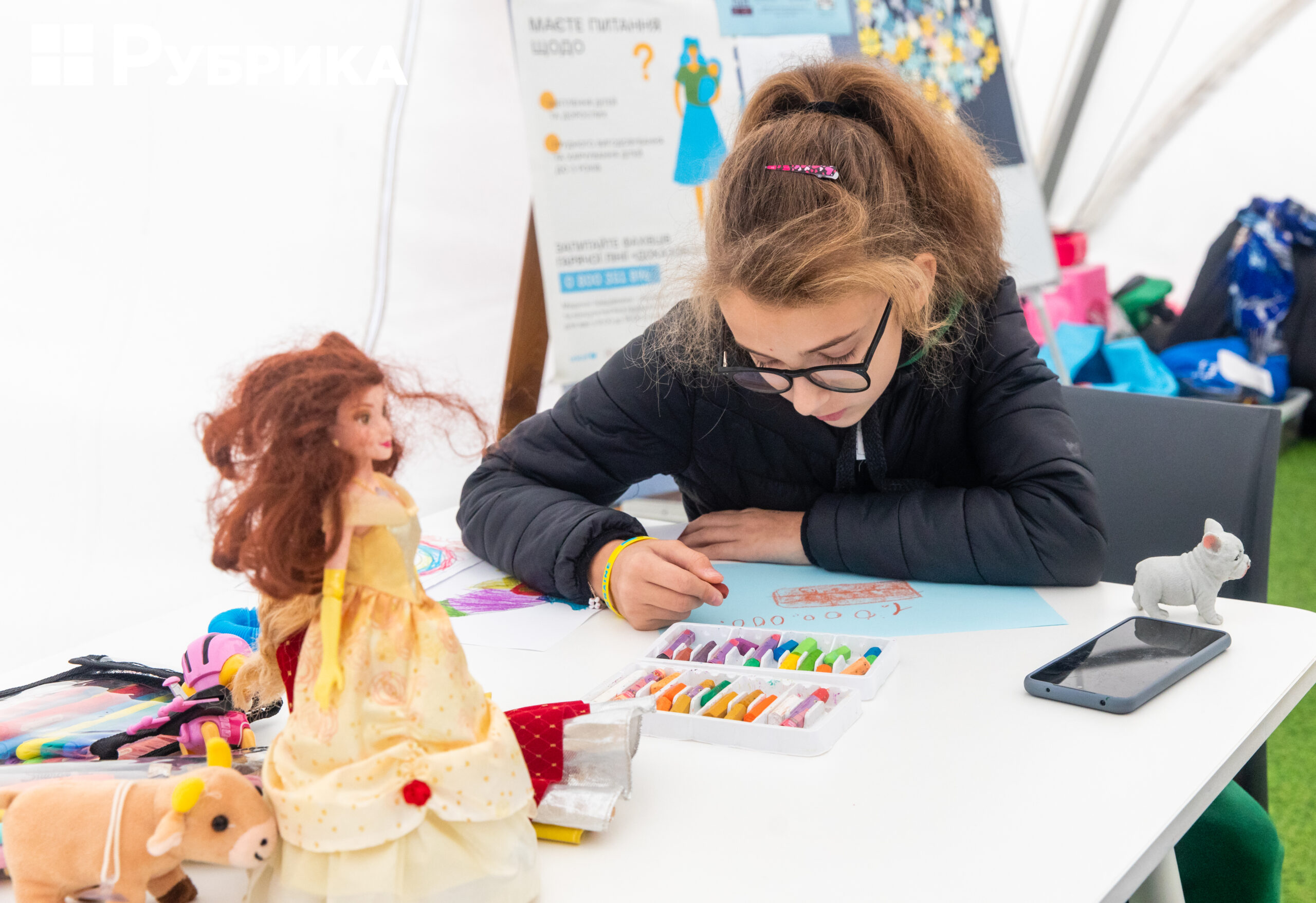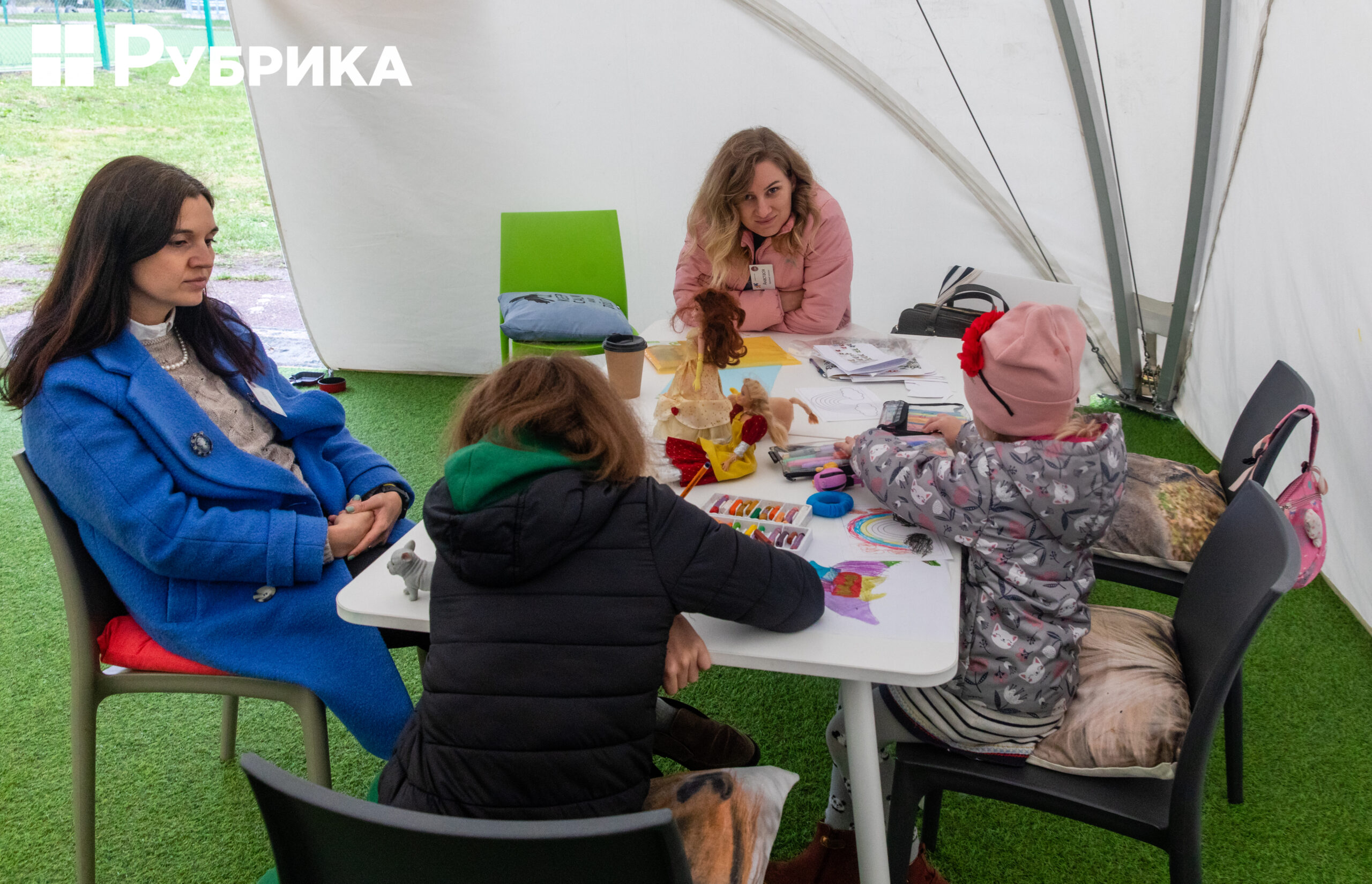
What is the problem?
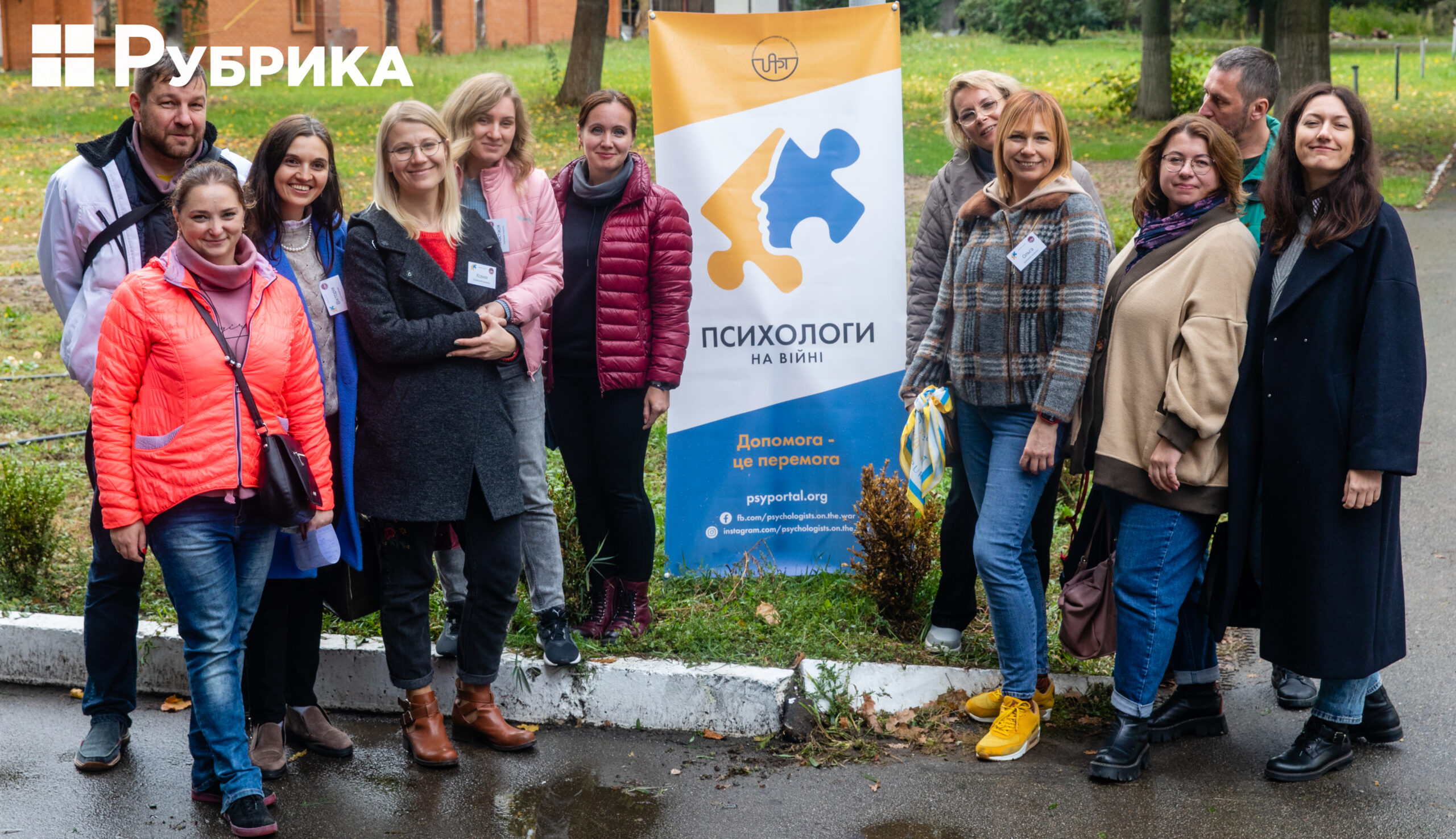
Several dozen psychologists and psychotherapists gathered in the Psychologists At War initiative and started visiting communities that lived under temporary russian occupation. Currently, they work in the Kyiv region, but in the future, the endeavor will expand to other areas, including the Kharkiv region. The Psychologists At War project has been working for two months.
"Most often we come across the situation where people have had such an experience, which they haven't been able to cope with half a year after the de-occupation," says the initiative creator, doctor of psychology, chairman of the Ukrainian Association of Psychotherapists and Business Trainers Valerii Dorozhkin. "This is such a devastating experience. When we start talking to someone, even on the streets in de-occupied settlements, people stop and start talking to us. They can't control themselves. That is, people need new people who can listen to their stories and who can support them."
This experience, says Valerii Dorozhkin, forced people to experience intense emotions that have such an impact on life that they lead to sleep disorders, relationship break-ups, and the loss of personal boundaries.
"People say that they start talking to strangers as if they were acquaintances, but with acquaintances, on the contrary, they may close off and not communicate. In such cases, it is about actually re-establishing social relations, trust in the authorities, trust in ourselves," explains the doctor of psychology.
The Psychologists At War team visited the residents of Borodianka, who lived under the russian occupation, talked with adults and children, and explained to people how they could support themselves and their relatives and live on. Rubyika accompanied the psychologists on this trip.
"My story is not over yet"
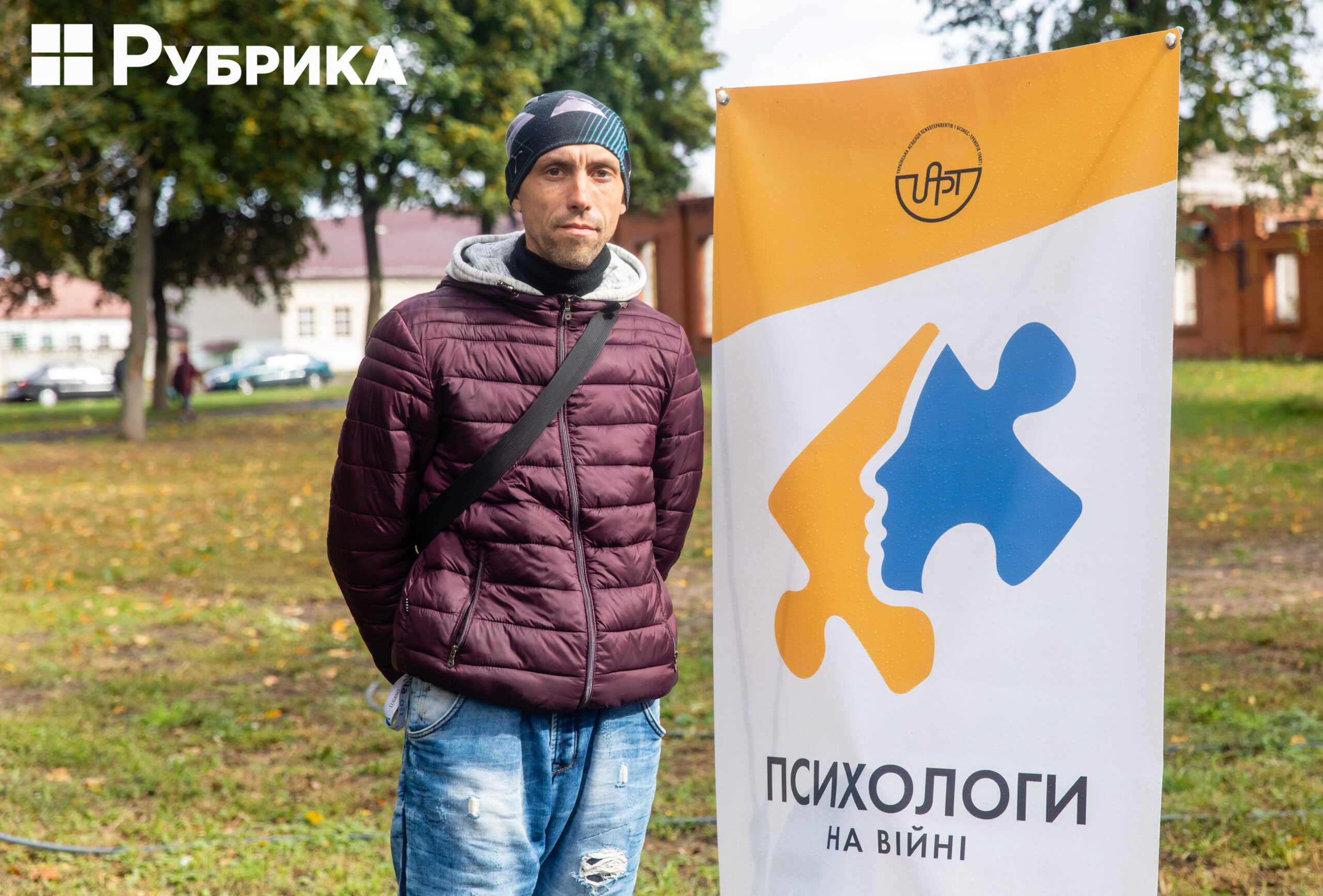
Oleksandr from Borodianka, who applied for psychological help
Oleksandr is 41 years old. He is from Borodianka. During the entire occupation, he stayed in the village. He's a psychologist by profession, so he understands why people who have experienced the horrors of war should seek help from specialists. He says the most challenging period for him was uncertainty: "You didn't know when it would end, and you didn't know where to find the resources to live. It was the hardest. I was strengthened by faith in God and the understanding that everything I went through in life was not in vain. I had the feeling that my story is not over yet, and this war is one of the difficult stages I have to go through," says Oleksandr. "I am convinced that people need psychological help because when you injure the body, you heal it. It is the same with the soul. The war broke me into puzzles, and now I have to put them together."
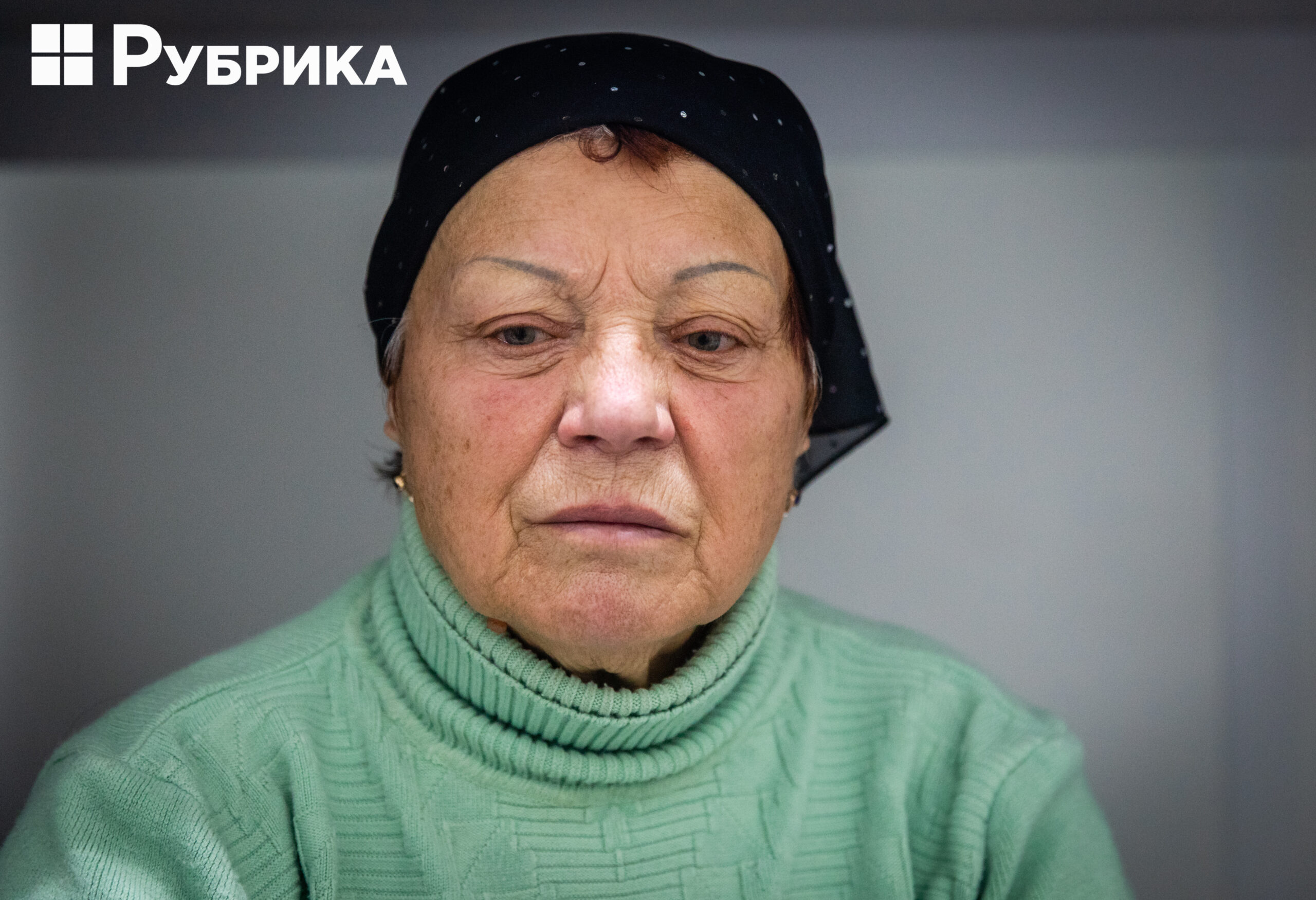
Maria Vasylenko, a resident of Borodianka, who lost her daughter and son-in-law as a result of russian aerial bombing
Maria Vasylenko, 78, is also from Borodianka. A russian high-explosive aerial bomb took away the lives of her daughter and son-in-law, who had been hiding in the basement of the house, in the very corner where the bomb hit it. Now she's raising her grandchildren by herself—Milana, who is ten years old, and Mykyta, who is 16. The children are still painfully grieving the loss of their parents.
Leaving her children under the rubble in the basement was the most challenging thing for Maria. "There wasn't a single call from them when the bomb fell on the house. I hoped that they would survive. But it did not happen because it was a high-explosive aerial bomb that broke the basement into the sand. My children were crushed there. And on the second day, the water filled up the basement. This happened on March 1, and they were pulled out only on April 11 after the liberation of Borodianka by the Ukrainian military. My grandchildren will never say 'mom,' 'dad,'… How will they survive this…" Maria Vasylenko remembers the terrible moments of her life with tears in her eyes.
What is the solution?
The Psychologists At War project brought together psychotherapists, clinical psychologists, doctors, and social workers to help survivors.
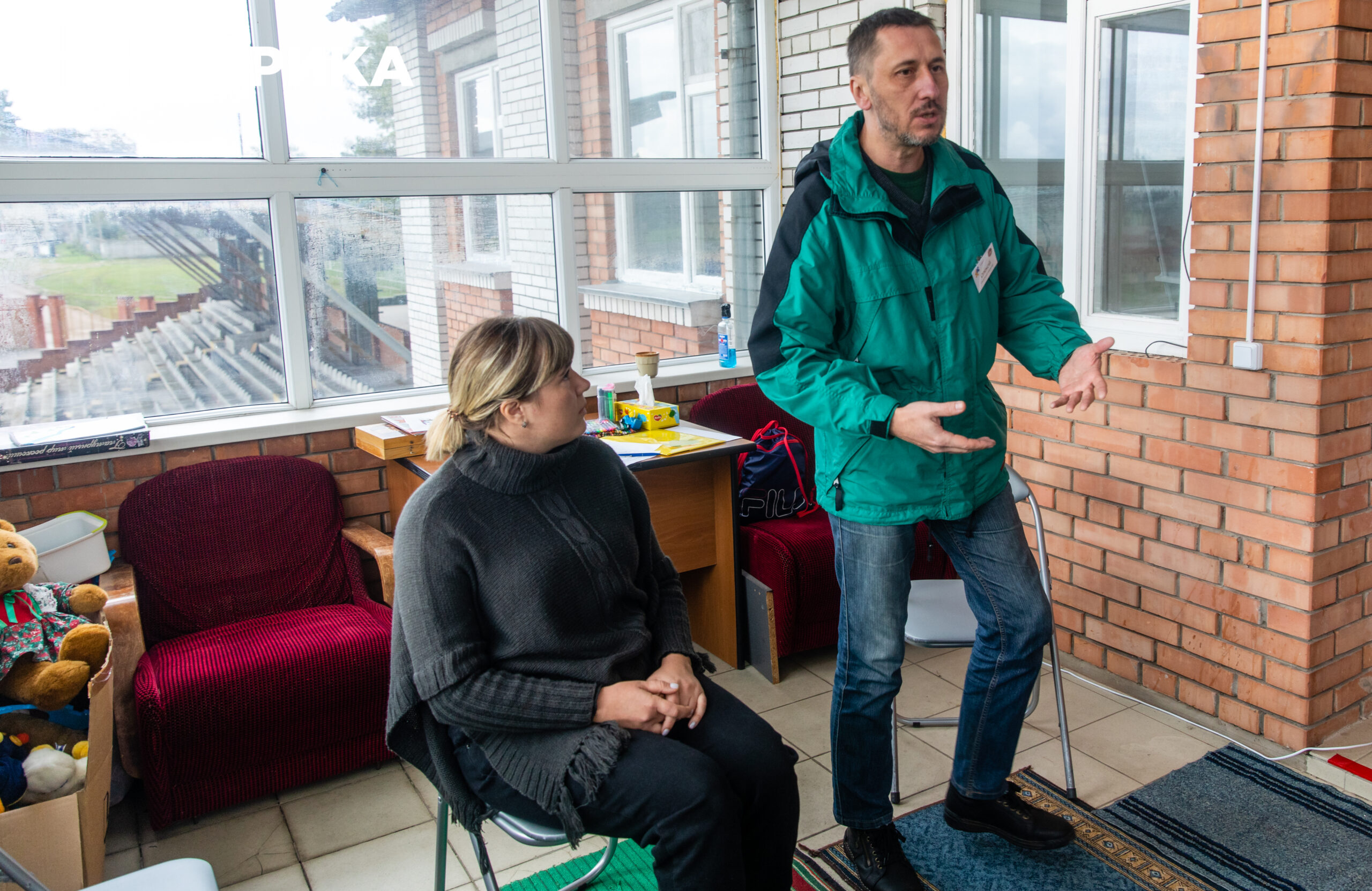
"Since March, many psychologists have joined us and provided their help online for free. But we faced the problem that few people were ready to apply for help online. First, people didn't have the Internet and mobile service. We can also say people have lost trust in online counseling. And many people have generally lost trust in frank communication with others," says Valerii Dorozhkin. "That is why we decided to go to de-occupied settlements and offer our services through volunteers or people known in those places. We warn about our arrivals and start working with people who need it."
How does it work?
One of the goals of the Psychologists At War project is to restore social trust between people.
"Clinical psychologists work more individually, and they also work with children's groups. Many parents don't know how to explain to their children what happened, how to explain the loss of humanity they faced during the occupation," says the initiative's creator.
Social workers help people get information about housing restoration, financial benefits, legal assistance, etc. Doctors from the team provide medical services.
"First, people faced the fact that inhuman monsters came to their homes. When we call russians 'orcs,' we seem to be looking for a way to explain to ourselves how living people can behave like that. That is why we even choose a word that distinguishes people from people. The primary inquiry we get now is how to start trusting the world again. Many people are not ready to accept help and psychological support. It happens because most people from the de-occupied territories are not prepared to rely on people. Therefore, we are now trying to conduct not only individual consultations but also to gather groups where we try to restore people's trust in their relatives and neighbors. After all, the russians tried to destroy people not only physically but also to destroy social relations between people, to sow distrust in each other, " says Valerii Dorozhkin.
"People who haven't turned to psychotherapists or didn't even know that there's a culture of self-care, having learned that someone can listen to them—in our case, it's Psychologists At War—come and tell us about their experiences. They don't expect anyone to help them. They just want to share this difficult story with someone else. Even when we came to Borodianka, Hostomel, Moshchun, Bucha, i.e., to places many people had already visited and offered help, we met people who said they had already told this story ten times and were tired of it. However, they still told it to us for the eleventh time, and they cannot be denied to do that," explains Dorozhkin. "What is the sign that the story ceases to concern a person? When a person begins to feel less and less emotional and tells it calmly. This is a sign that the story is almost finished."
Even more helpful solutions!
Psychologists advise people to find someone they can rely on to trust each other again.
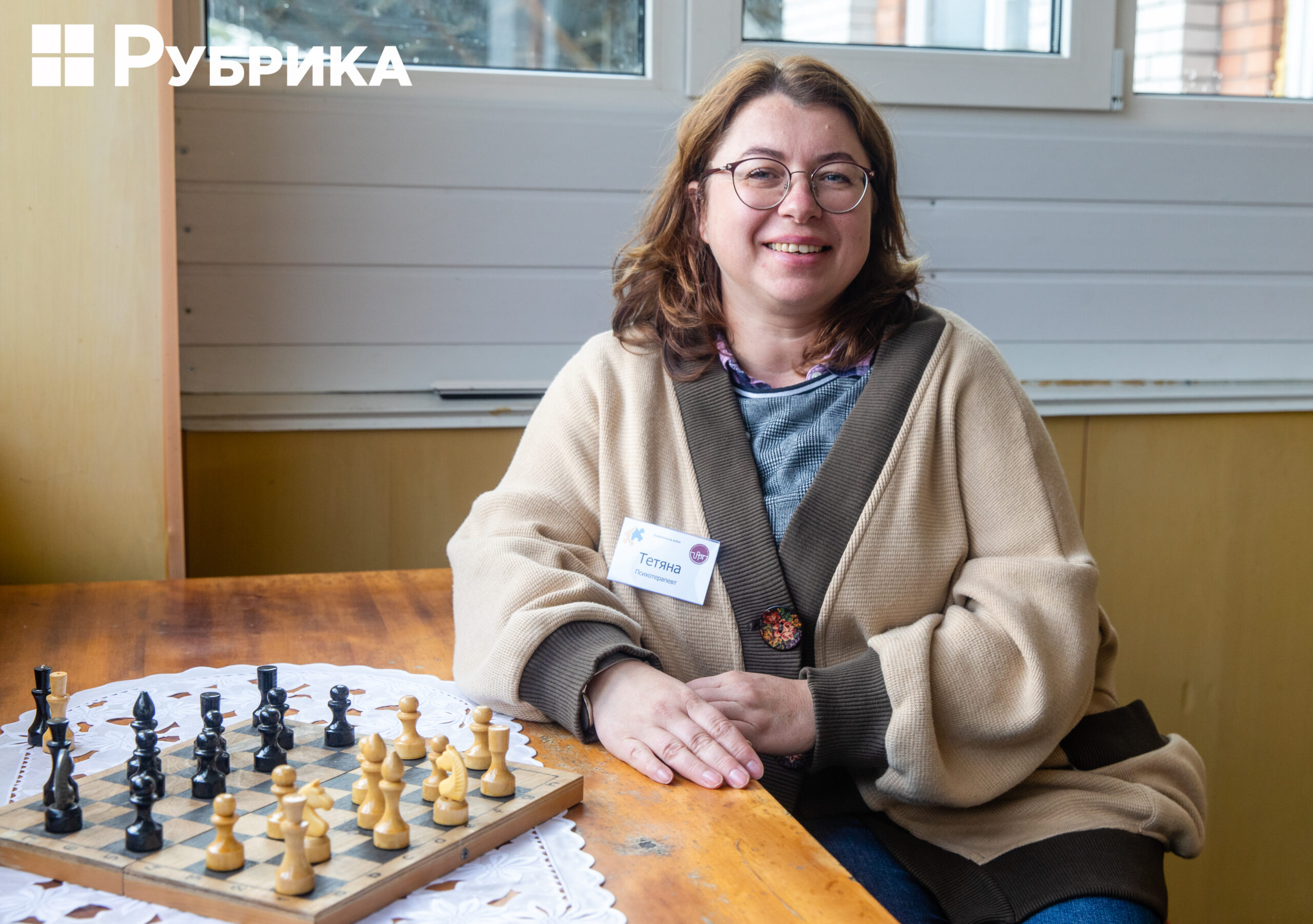
"When a person tells a specialist about their experience, it is also an opportunity for them to start trusting their story again. It is a crucial moment in which a person receives support and reassurance that what they felt and are feeling now is normal.
We also recommend people work a lot physically. It allows the body to be relieved of stress. Many chronic diseases have worsened in people. It shows how solid and heavy the experienced emotions are, that they even got into the body and hit the weak places," says Valerii Dorozhkin, doctor of psychology.
He also advises: if you have the opportunity, adopt a pet: "A person feels like a person when they care for someone, feed someone, and help someone."
Valerii Dorozhkin, the Psychologists At War founder, says that what impresses and fascinates him the most in the de-occupied territories is how people help others in difficult situations: "People having their house almost whole offer a few families to live with them because the latter had nothing left at all. Or stories of how people supported not only people but also animals. Moments like these make it possible to believe in humanity again. Our people, even when their lives were at risk, cared about other people, animals, and even the dead."
How does it not work?
"You shouldn't do anything that increases guilt," Valerii Dorozhkin emphasizes. "That is, don't tell people they should have evacuated earlier or, on the contrary, shouldn't have left. Don't immerse a person in a traumatic experience if they're not ready to immerse themselves in it and recall what happened. The fact that a person tries to forget their experience can be a defense mechanism. Therefore, seeing that a person is not ready to tell their story, we ask them about their emotions."
However, Dorozhkin says there are tips on what to do and what not to do.
"Unfortunately, our culture belongs to the 'alcoholophilic' cultures, and people tend to believe that sorrow and grief can be 'drunk away.' That is, it is about the need to eliminate some experiences by destroying the body. But it does not work and, on the contrary, only creates more new problems.
If a person cannot see a psychotherapist, we say that they should continue to live their everyday life and make it a habit to do small exercises, the results of which can be seen here and now. You can do breathing exercises, walk more, and do physical activities.
Still, we cannot live only by war. It is necessary to live a part of a peaceful life and understand that in addition to the military function that we perform, we have a recovery function. It is vital. And now we have to do everything for this function to work," says Valerii Dorozhkin, the creator of the Psychologists At War initiative.
What are the main symptoms of post-traumatic stress disorder?
- Sleep disorders. This can manifest both in the fact that a person sleeps all the time and that they wake up at 4 am and cannot fall asleep.
- Increased anxiety.
- Changes in relationships with people.
- Tension. It is, for instance, the feeling of over-tension of the hands and the body in general.
- Apathetic state: a person has lost confidence in the future.
How to understand that a person needs to consult a psychologist?
First, a person has obsessive thoughts when a person living everyday life realizes that they are thinking about one thing and are stuck in the past when one exact moment spins before their eyes.
Second, a person feels apathy when they don't want anything, and they feel despair in the future.
How to detect PTSD in children?
It is necessary to pay attention to the child's behavior, says the head of the Ukrainian Association of Psychotherapists and Business Trainers, Valerii Dorozhkin.
"Maybe your child became hyperactive, but until February 24, you hadn't noticed it. Some children have grown up a lot during this time. And if they need answers to their questions, it is good for parents to talk to them and give them the answers their children need. We are currently observing enuresis in children. Since the children experienced fear, some of them are now in regression: they may be 10–11 years old, but they feel like they are 5–6 years old. You shouldn't quarrel with children. If parents see any symptoms in their children, it signals that something is wrong, and they need to be supported," Valerii Dorozhkin concluded.



